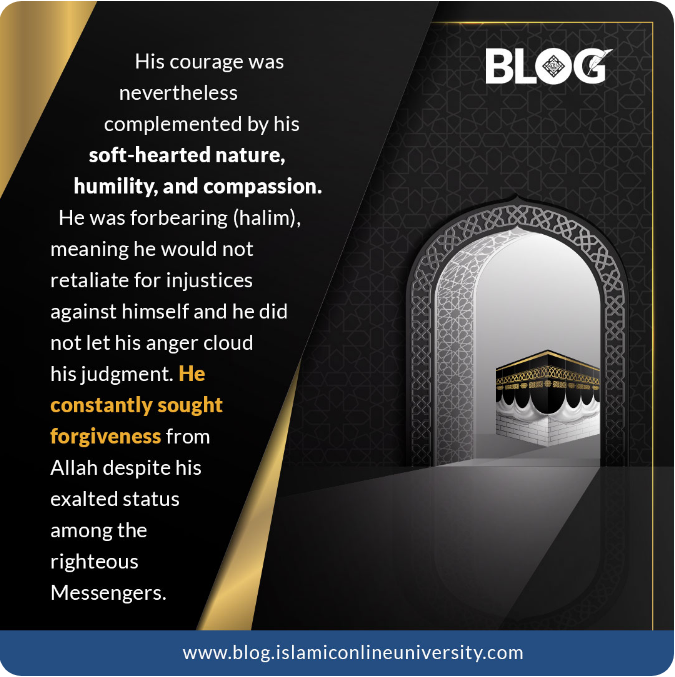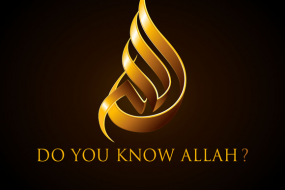
In the name of Allah, the Gracious, the Merciful
On the 8th of Dhul-Hijjah, pilgrims from all over the world come to Mecca to perform the Hajj pilgrimage and complete this tremendous pillar of Islam. For many of them, it will be their first and only opportunity to visit the land of the Prophet ![]() and his forefathers, Ibrahim (Abraham)
and his forefathers, Ibrahim (Abraham) ![]() and Isma’il (Ishmael)
and Isma’il (Ishmael) ![]() . They will circumambulate the Ka’bah (called Tawaf), pray by the Maqam of Ibrahim (where he oversaw construction of the Ka’bah), run between Safa and Marwa in remembrance of his wife Hajar, and throw pebbles at Al-Jamarat in reenactment of his triumph over Shaytan’s whispers. Ibrahim occupies a central place in the rites of Hajj and, as such, it is an appropriate time for all of us to reflect upon his legacy whether we are at Hajj or not.
. They will circumambulate the Ka’bah (called Tawaf), pray by the Maqam of Ibrahim (where he oversaw construction of the Ka’bah), run between Safa and Marwa in remembrance of his wife Hajar, and throw pebbles at Al-Jamarat in reenactment of his triumph over Shaytan’s whispers. Ibrahim occupies a central place in the rites of Hajj and, as such, it is an appropriate time for all of us to reflect upon his legacy whether we are at Hajj or not.
What were the characteristics of Ibrahim ![]() ? What were his values? His description in the Noble Qur’an gives us a clear picture of a man of faith, sincerity, courage, and compassion.
? What were his values? His description in the Noble Qur’an gives us a clear picture of a man of faith, sincerity, courage, and compassion.
Allah ![]() said,
said,
Indeed, Abraham was a (comprehensive) leader, devoutly obedient to Allah, inclining toward truth, and he was not of those who associate others with Allah. (An-Nahl, 16:120)
Ibrahim ![]() was a nation (ummah) unto himself, that despite the few followers he may have had in his lifetime, his teachings forever altered the course of history and the development of human civilization for the better. It was because of his sincere faith, his affirmation of pure monotheism and rejection of idolatry, that he is so highly regarded across the globe in the Abrahamic religions until today.
was a nation (ummah) unto himself, that despite the few followers he may have had in his lifetime, his teachings forever altered the course of history and the development of human civilization for the better. It was because of his sincere faith, his affirmation of pure monotheism and rejection of idolatry, that he is so highly regarded across the globe in the Abrahamic religions until today.
Fundamental to his faith was his truthfulness. He did not compromise his monotheism to please idolaters, nor did he dilute his religion for the mass consumption. He told the truth, even when it put his life at risk.
Allah ![]() said,
said,
Mention in the Book (the story of) Abraham. Indeed, he was a man of truth and a prophet. (Maryam, 19:41)
He ![]() was courageous in the face of persecution. He confronted his people for the idolatry and injustices they were committing and, as a result, they attempted to throw him alive into a raging fire. Yet, he held onto his faith and Allah saved him as a sign for the believers. Our Prophet Muhammad
was courageous in the face of persecution. He confronted his people for the idolatry and injustices they were committing and, as a result, they attempted to throw him alive into a raging fire. Yet, he held onto his faith and Allah saved him as a sign for the believers. Our Prophet Muhammad ![]() was so inspired by this example that he acted in the same way when his people tried to wipe out the Muslims.
was so inspired by this example that he acted in the same way when his people tried to wipe out the Muslims.
Ibn Abbas ![]() said,
said,
‘Allah is Sufficient for us and He Is the Best Disposer of affairs,’ (Ali ‘Imran, 3:173) was said by Abraham when he was thrown into the fire, and it was said by Muhammad when (the hypocrites) said, ‘A great army is gathering against you, therefore, fear them,’ but it only increased their faith and they said, ‘Allah is Sufficient for us, and He is the Best Disposer of affairs.’ (Bukharee 4563)
His courage was nevertheless complemented by his soft-hearted nature, humility, and compassion. He was forbearing (halim), meaning he would not retaliate for injustices against himself and he did not let his anger cloud his judgment. He constantly sought forgiveness from Allah despite his exalted status among the righteous Messengers.
Allah ![]() said,
said,
Indeed, Abraham was forbearing, grieving, and (frequently) returning (to Allah). (Hud, 11:75)
Ibn Kathir commented on this verse, writing, “This is a commendation for Ibrahim because of these beautiful characteristics.”
His compassion can be witnessed in his attitude towards the very people who wanted to murder him. Even though enmity characterized his relationship with the idolaters, including his own father who had in fact initiated such enmity, he still sought forgiveness for him.
Allah ![]() said,
said,
There has already been for you an excellent pattern in Abraham and those with him, when they said to their people, ‘Indeed, we are disassociated from you and from whatever you worship other than Allah. We have denied you, and there has appeared between us and you animosity and hatred forever until you believe in Allah alone,’ except for the saying of Abraham to his father, ‘I will surely ask forgiveness for you, but I have not (power to do) for you anything against Allah.’ (Al-Mumtahanah, 60:4)
And Ibrahim ![]() said,
said,
Forgive my father. Indeed, he has been of those astray. (Ash-Shu’ara’, 26:86)
In Islam, we are not allowed to pray for the forgiveness of enemies who die in unbelief, since this is something they themselves have rejected, but it still illustrates the tendency of Ibrahim ![]() to err on the side of mercy rather than justice, forgiveness rather than punishment.
to err on the side of mercy rather than justice, forgiveness rather than punishment.
Allah ![]() said,
said,
The request of forgiveness of Abraham for his father was only because of a promise he had made to him. But when it became apparent to Abraham that his father was an enemy to Allah, he disassociated himself from him. Indeed, was Abraham compassionate and patient. (Al-Tawbah, 9:114)
Ibrahim ![]() further stated in his supplication to Allah,
further stated in his supplication to Allah,
My Lord, indeed (the idols) have led astray many among the people. So whoever follows me, then he is of me, and whoever disobeys me, indeed, You are (yet) Forgiving and Merciful. (Ibrahim, 14:36)
He did not hastily call for the destruction of sinners but rather, as noted by Ibn Kathir, he “referred their matter to Allah. If Allah wills, He will punish them, and if He wills, He will forgive them.” He wanted to leave the door of repentance open to every wrongdoer until Allah ultimately decrees their fate, for better or worse.
Lastly, and perhaps most importantly, Ibrahim ![]() was so distinguished in the eyes of Allah because his heart was pure. His inner-being was totally free from malice, envy, greed, and worldliness.
was so distinguished in the eyes of Allah because his heart was pure. His inner-being was totally free from malice, envy, greed, and worldliness.
Allah ![]() said,
said,
Indeed, among his kind was Abraham, when he came to his Lord with a sound heart. (As-Saffat, 37:83-84)
It is no wonder at all, then, that our Prophet ![]() looked up to Ibrahim and tried to embody his character and values in everything that he did. He even deflected the praise of his people from himself to his forefather!
looked up to Ibrahim and tried to embody his character and values in everything that he did. He even deflected the praise of his people from himself to his forefather!
Anas ibn Malik reported ![]() that a person came to Allah’s Messenger
that a person came to Allah’s Messenger ![]() and said, “O, the best of creation!” Thereupon Allah’s Messenger
and said, “O, the best of creation!” Thereupon Allah’s Messenger ![]() said, “He is Ibrahim, peace be upon him.” (Muslim 2369a)
said, “He is Ibrahim, peace be upon him.” (Muslim 2369a)
In sum, Hajj is a great time for us to reflect upon the life and legacy of Ibrahim, whether we can make the trip or not. There are so many lessons we can learn, and so many values to admire, in the story of this noble Messenger. His faith, his truthfulness, his courage, his mercy, and his purity of heart, all of it is so deeply relevant to our times and will continue to be relevant to all believers until the Day of Judgment.
We ask Allah for His help in following the ways of Ibrahim just as we ask Allah to answer the supplications of the pilgrims as they call out for His mercy on the plane of ‘Arafah.
Success comes from Allah, and Allah knows best.







